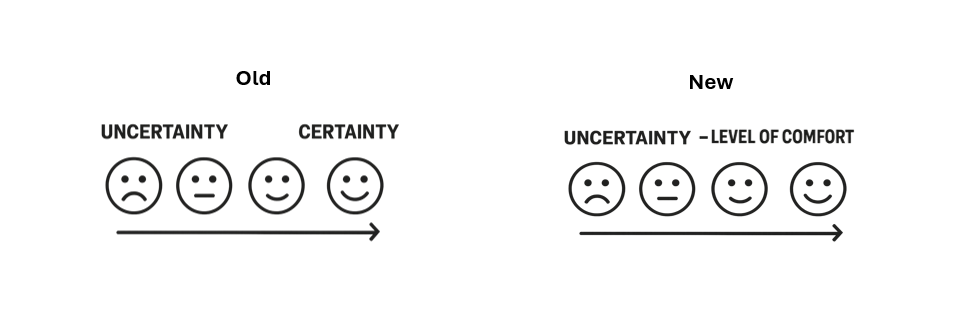ne positive about the disruptions that educators have experienced over the past few years is that they have forced us to adapt and rethink how education must evolve to meet these changes. Often those evolutions were ideas which had been under discussion for a while.
At the start of the Covid pandemic I wrote about how the crisis was forcing certain elements of education into the future. These included the rise of learning communities, increased focus on student agency, the changing of models from the top–down ‘sage on the stage’ to a more collaborative ‘guide on the side’ approach, renewed focus on learning to learn, and recentering of wellbeing at the core of education. All of these have been under discussion for years or even decades but without commitment. The pandemic gave us, perhaps forced us, the necessary push to commit.
The pressures we are experiencing today, especially from AI, are increasing both the amount and the speed of change. Such changes in our environment bring with them the potential to dramatically change our processes and improve our ultimate outcomes, but that only remains true if we are open to change and ready to reframe our processes.
Our ability to grow through change comes down to how we view and react to change. We must become more open to uncertainty. We must be more comfortable with not knowing everything—both literally as educators but also as leaders. Instead we must embrace more collective agency, experimentation, and broad curiosity, and the only way we nurture those characteristics is by admitting our own uncertainty from the start.
In the past, we made decisions when we’d learned all there was to know about the problem, when we had a sense of certainty. The near future will instead empower those who are comfortable with not knowing everything and be willing to discover solutions.

Such a change in our own psyche will be a necessity to tackle any new crises, challenges, or changes we encounter as an individual, group, community, or as a sector. It comes down to flexibility, responsiveness, and the ability to be comfortable with a certain level of discomfort and uncertainty when we make our decisions.
Education’s future is in our hands, and if we are prepared to step outside our own comfort zones, its potential is great.


a global affairs media network
Change can be good. Accept and embrace it.

Image by Santiago Lacarta from Pixabay
September 24, 2025
Pressures on education today are increasing both the amount and speed of change. These changes are uncomfortable, but if we learn to productively embrace discomfort, they can dramatically improve education outcomes, writes Sean Slade.
O
ne positive about the disruptions that educators have experienced over the past few years is that they have forced us to adapt and rethink how education must evolve to meet these changes. Often those evolutions were ideas which had been under discussion for a while.
At the start of the Covid pandemic I wrote about how the crisis was forcing certain elements of education into the future. These included the rise of learning communities, increased focus on student agency, the changing of models from the top–down ‘sage on the stage’ to a more collaborative ‘guide on the side’ approach, renewed focus on learning to learn, and recentering of wellbeing at the core of education. All of these have been under discussion for years or even decades but without commitment. The pandemic gave us, perhaps forced us, the necessary push to commit.
The pressures we are experiencing today, especially from AI, are increasing both the amount and the speed of change. Such changes in our environment bring with them the potential to dramatically change our processes and improve our ultimate outcomes, but that only remains true if we are open to change and ready to reframe our processes.
Our ability to grow through change comes down to how we view and react to change. We must become more open to uncertainty. We must be more comfortable with not knowing everything—both literally as educators but also as leaders. Instead we must embrace more collective agency, experimentation, and broad curiosity, and the only way we nurture those characteristics is by admitting our own uncertainty from the start.
In the past, we made decisions when we’d learned all there was to know about the problem, when we had a sense of certainty. The near future will instead empower those who are comfortable with not knowing everything and be willing to discover solutions.

Such a change in our own psyche will be a necessity to tackle any new crises, challenges, or changes we encounter as an individual, group, community, or as a sector. It comes down to flexibility, responsiveness, and the ability to be comfortable with a certain level of discomfort and uncertainty when we make our decisions.
Education’s future is in our hands, and if we are prepared to step outside our own comfort zones, its potential is great.


